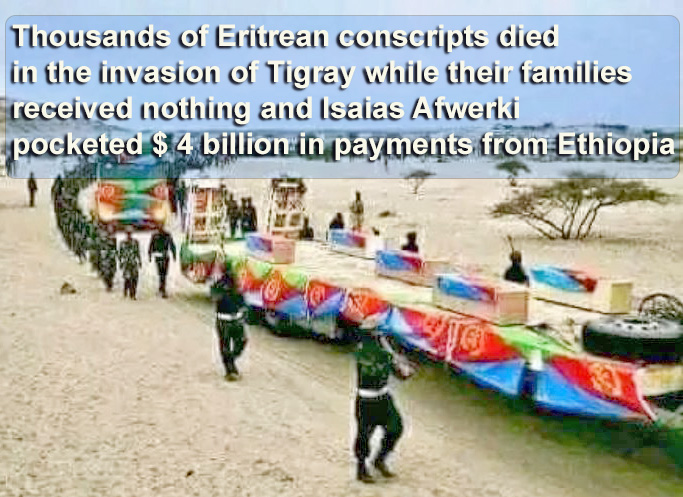
A funeral procession for Eritrean soldiers who died fighting in the Tigray invasion points to the way young peoples future is wholly decided by the government. Human Rights Watch research finds that most Eritreans have to go through compulsory military service with many “spending their entire working lives at the service of the government in either a military or civilian capacity”. In my work at Mekelle University Ayder Hospital I saw and interacted with student refugees and hundreds of patients sent by the United Nations and International Organization for Migration over the past 10 years of being in Ethiopia. They told many horror stories.
Those with close ties to the the despotic leader, Isaias Afwerki, are the only ones exempt. Otherwise all teenagers must attend Warsai Yekalo Secondary School, located in the Sawa military camp which is isolated and restricted from visitors near the border with Sudan, for the final half year of secondary school. Satellite imagery and reports from refugees describe large mass burial grounds where noncompliant students end up. Over the past twenty years more than 500,000 young people have fled Eritrea often risking a perilous crossing of the Mediterranean sea.
New conscripted soldiers are paid about 2000 Nakfa per month which is about $132 dollars. This is about half of what government civil servants are paid. Their families can be threatened if the soldier has poor performance. During the Tigray invasion Eritrean prisoners of war were found with lists of items they were supposed to acquire and help bring to Eritrea including medical equipment, computers, cars, farm equipment, telephone equipment, factory machines, and the list goes on. It is known that Ethiopia paid at least $4 billion for the mercenary services which benefited the ruling elite but only brought death for thousands of young people.

